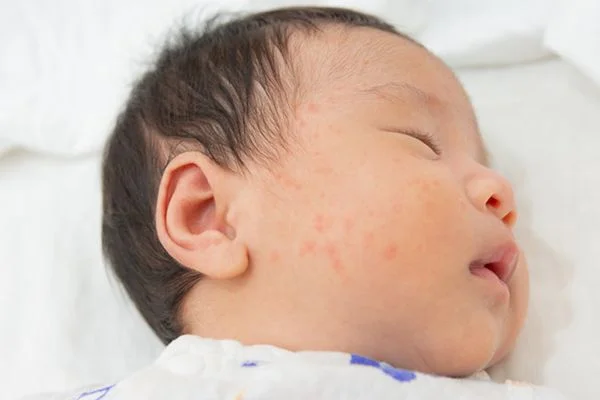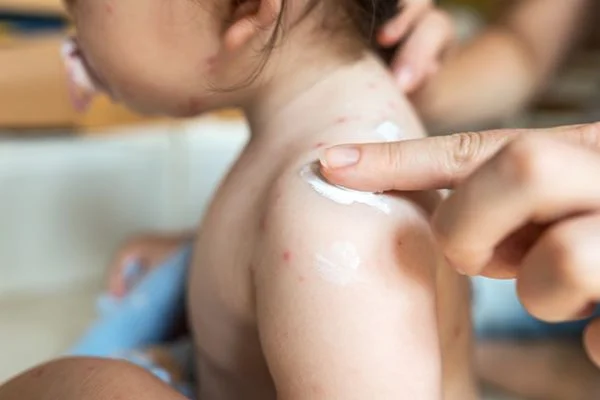For many parents, baby wipes are a go-to solution for everyday messes. But what do you do if your baby is allergic to those wipes? Knowing how to treat your child’s symptoms is essential so that the reaction doesn’t escalate. Let’s look at how you can identify and how to treat allergic reaction to baby wipes.
To treat an allergic reaction to baby wipes, stop using them, gently wash affected areas with water, apply a mild cortisone cream, and consult a doctor for severe reactions or persistent symptoms.
How To Treat Allergic Reaction To Baby Wipes | Pro Tips
Identifying the Allergy
The first step in treating any allergy is identifying it, especially when it comes to allergies in babies. Some signs of an allergic reaction include hives, rashes, swelling, and redness around the area where the wipe was used.
These symptoms may worsen until the allergen (in this case, the ingredients used in baby wipes) is removed from contact with your child’s skin.
Treating the Allergy
Once you have identified that your baby has an allergy to their wipes, it’s time to treat it. The most important thing you can do is keep their skin clean and dry; this will help prevent further irritation or infection.
Ointments or creams that contain hydrocortisone can also be used as a topical treatment for your child’s allergy. However, consult your pediatrician before applying any medication directly to your baby’s skin.
In addition, switch out any regular soap or shampoo for one specifically designed for sensitive skin types. This will help keep your baby’s skin healthy and free from irritants while keeping their hair soft and silky smooth.
You should also avoid using any detergents or fabric softeners containing fragrances or dyes; these could also cause a reaction in sensitive individuals such as children prone to allergies or asthma attacks.
Also Read: How To Burp a Baby In a Car Seat?
Common Symptoms of a Baby Wipes Allergy
If your baby is constantly itching, redness appears on the skin, or you notice hives or other rashes on their body, it may be a sign of an allergy to baby wipes.
While most babies have sensitive skin, certain chemicals in baby wipes can cause allergic reactions. Here’s an overview of the common symptoms of a baby wipes allergy and how to identify and treat them.
Identifying Symptoms of a Baby Wipes Allergy
The most common symptom of an allergy to baby wipes is itchy, red skin. This can appear anywhere on the body but is often seen in the diaper area after using wipes. Hives or rashes can also occur when your baby is experiencing an allergic reaction to their wipes.
Other signs include excessive scratching and flaking skin in the diaper area. In extreme cases, babies may experience swelling around the mouth and eyes due to an allergic response.
Also read: How To Carry Cow Milk For Baby While Traveling?
Diagnosing a Baby Wipes Allergy
If you suspect your child has a wipes allergy, speak to your pediatrician immediately for diagnosis and treatment options. Your doctor will likely ask about any signs or symptoms you’ve noticed to confirm your suspicions.
They may also take a sample from your child’s skin for testing or recommend patch tests if they suspect an allergy to specific ingredients found in some brands of wipes.
How Long Does It Take For A Contact Allergic Reaction To Go Away?

Regarding contact allergic reactions, the duration of symptoms can vary. Generally, a response may appear anywhere from a few minutes to several hours after contact with an allergen.
In most cases, the symptoms will diminish in a few hours once the individual has been removed from contact with the allergen. However, some more severe contact allergies, such as atopic dermatitis and rashes, may last for several days or weeks before clearing up completely. In these cases, it is essential to seek medical attention since prolonged exposure to allergens can lead to more severe health issues.
Will An Allergic Reaction Go Away By Itself?
It can be a scary experience to find yourself having an allergic reaction suddenly. In some cases, the body can counteract the allergen, and the symptoms will start to subside. However, allergies can cause varying levels of difficulty in breathing or anaphylactic shock, which may require treatment from a doctor if it becomes severe enough.
It is essential to monitor your reactions carefully and seek medical help if needed, as adverse reactions can often worsen over time. Long-term management of allergies is also necessary if they are unlikely to disappear without further intervention completely.
Also Read: How To Tie A Baby Carrier Wrap?
Bottom Line:
How to treat allergic reaction to baby wipes? For parents whose children have had an allergic reaction to baby wipes, knowing what steps to take next is critical in ensuring their little one stays safe and comfortable during this ordeal.
Keeping their skin clean and dry, switching out regular soaps and shampoos for those formulated for sensitive skin types, avoiding fragrances and dyes when possible – all of these things will help keep their child’s allergies at bay while giving them peace of mind knowing they are doing everything they can for their little one’s safety.

